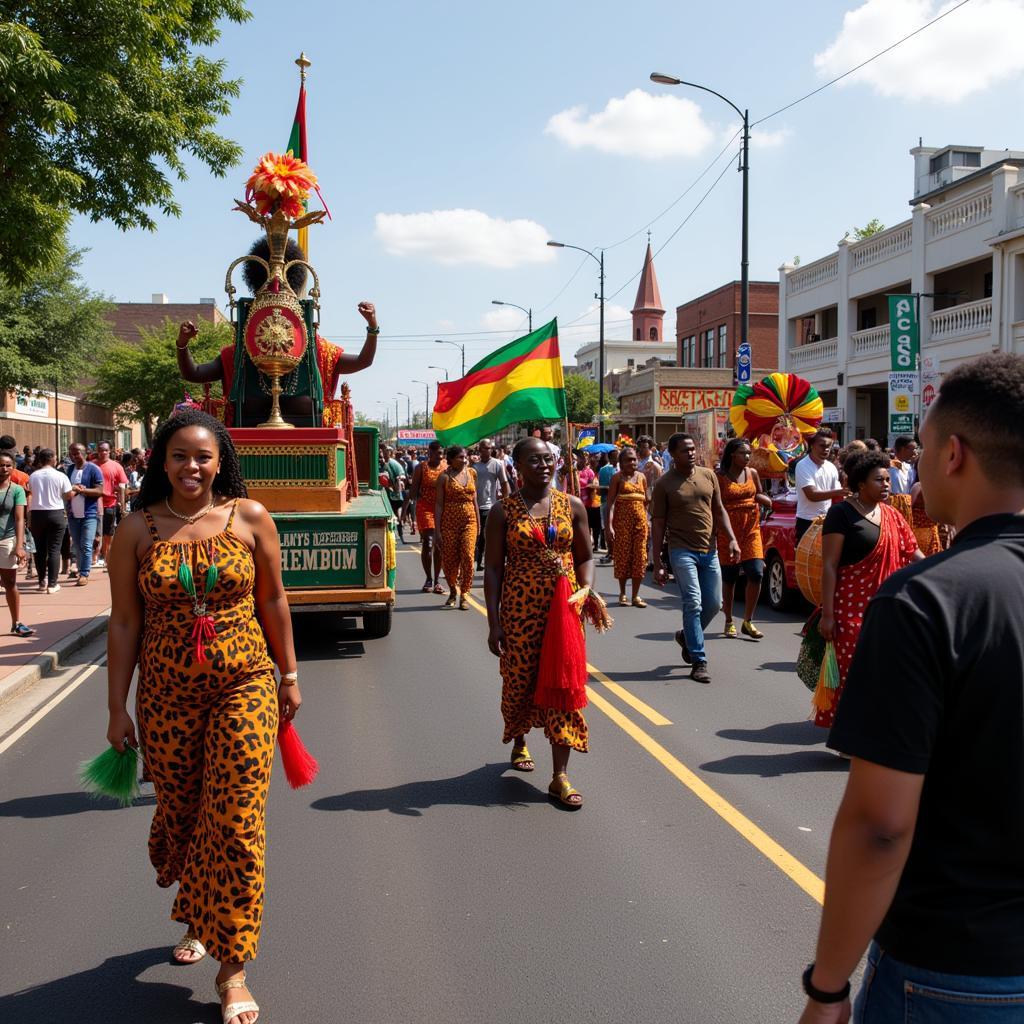The Only African American to Win the Nobel Prize in Literature: A Celebration of Toni Morrison
Toni Morrison was a towering figure in American literature, a powerful voice that illuminated the experiences of Black Americans through her evocative prose and profound insights into the human condition. She was the first African American woman to win the Nobel Prize in Literature, and her legacy continues to inspire and challenge readers worldwide.
This article delves into Morrison’s remarkable life and career, highlighting her groundbreaking contributions to literature and her enduring impact on American culture.
A Life Marked by Storytelling and Struggle
Toni Morrison was born Chloe Anthony Wofford in Lorain, Ohio, in 1931. Her family, like many African Americans at the time, had migrated north in search of a better life. From an early age, Morrison was drawn to the power of storytelling, finding solace and inspiration in the rich oral traditions of her family and community.
“My mother told me that when I was born, she looked at me, and she said, ‘I have to write about this,’ ” Morrison once remarked. “She knew I was going to be a writer, but she didn’t know what I was going to write about.”
Morrison’s formative years were deeply shaped by the realities of Jim Crow segregation. She witnessed firsthand the pervasive racism and discrimination that permeated American society. These experiences provided the raw material for her later works, which explored themes of identity, race, and the legacy of slavery in America.
Breaking Barriers and Achieving Literary Excellence
Morrison began her writing career as an editor at Random House, where she honed her craft and gained valuable experience in the publishing industry. In 1970, she published her first novel, “The Bluest Eye,” a poignant exploration of the effects of racism and self-hatred on a young Black girl growing up in the American Midwest.
The novel’s unflinching portrayal of the Black experience in America garnered critical acclaim and helped to establish Morrison as a leading voice in contemporary literature.
“I was not interested in writing about white people,” Morrison once said. “I was interested in writing about black people and what it meant to be black in America.”
Morrison’s subsequent novels, including “Sula” (1973), “Song of Solomon” (1977), and “Beloved” (1987), cemented her reputation as a literary giant.
“Beloved,” a haunting and powerful story about the enduring legacy of slavery, was a critical and commercial success, earning Morrison the Pulitzer Prize in 1988 and the National Book Critics Circle Award. The novel was also adapted into a critically acclaimed film starring Oprah Winfrey.
Morrison’s literary achievements transcended national boundaries. In 1993, she became the first African American woman to win the Nobel Prize in Literature. The award acknowledged her profound contributions to literature and her ability to “give life to an essential aspect of American reality,” as the Nobel Committee stated.
A Legacy of Literary and Cultural Influence
Toni Morrison’s impact on American literature and culture is undeniable. She was a fierce advocate for Black voices and a passionate champion of social justice. Her works have been studied in classrooms around the world, inspiring generations of readers and writers.
“The most important thing I learned from Toni Morrison is that the stories of black people matter,” said Professor Maya Angelou, a renowned poet and activist. “They matter to us, and they matter to the world.”
Morrison’s legacy extends beyond her written works. She was a prolific speaker and essayist, sharing her insights on race, identity, and the power of language. Her voice was a powerful force for change, challenging readers to confront the uncomfortable truths about American history and the enduring legacy of racism.
A Legacy That Will Continue to Inspire
Toni Morrison passed away in 2019, but her impact continues to resonate deeply. Her books continue to be widely read and studied, and her influence on American literature and culture remains profound.
Morrison’s legacy is a testament to the power of storytelling to illuminate the human experience and challenge societal norms. She was a true pioneer, breaking barriers and paving the way for generations of writers to come.
“I think the important thing is to live and to live well, to live with passion, to live with the intention of living a life that has meaning,” Morrison once said. “And that’s what I try to do in my writing.”
Her words continue to inspire us to live our lives with meaning, to embrace our identities, and to strive for a more just and equitable world.
FAQs
Q: What were some of Toni Morrison’s most famous novels?
A: Morrison is best known for novels such as “The Bluest Eye,” “Sula,” “Song of Solomon,” “Beloved,” and “Jazz.”
Q: What awards did Toni Morrison win?
A: Morrison won numerous awards, including the Pulitzer Prize, the National Book Critics Circle Award, and the Nobel Prize in Literature.
Q: What were some of the themes that Toni Morrison explored in her writing?
A: Morrison’s works often explored themes of race, identity, gender, and the enduring legacy of slavery in America.
Q: What is Toni Morrison’s legacy?
A: Morrison’s legacy is a testament to the power of storytelling to illuminate the human experience, challenge societal norms, and inspire social change.
Q: What is the significance of Toni Morrison being the first African American woman to win the Nobel Prize in Literature?
A: Morrison’s achievement was groundbreaking, as it recognized the importance of Black voices in literature and their contribution to the richness of American culture. It paved the way for future generations of Black writers to receive recognition for their literary achievements.


